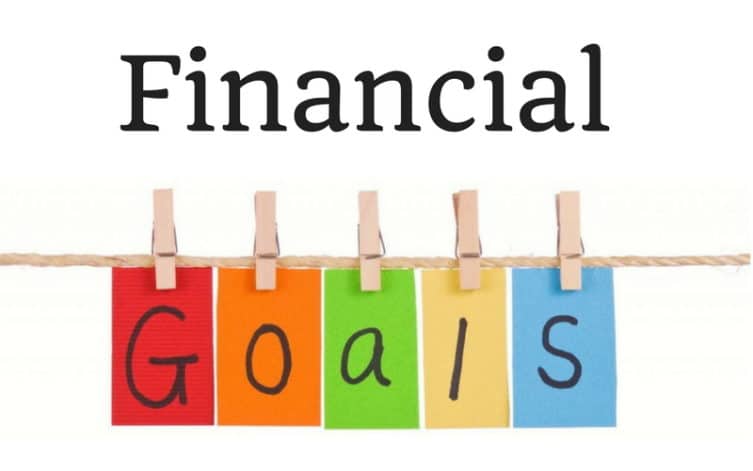Money drives many of the decisions that we make daily. Setting goals in our finance aspect can help us take control and feel more relaxed about those decisions. This is why you should understand the meaning of financial goals, examples for students and business owners, and types of financial goals in 2023.
Ready to get started? First, this article will teach you what financial goals are and why they’re important. Money without proper management is set to vanish without a reasonable and proper account of it. This proper management of money is the financial goals set on how money comes and goes off your hand. This article will help you better understand how to set good financial goals for your income. Also types of financial goals you should set to achieve. Let’s quickly go into knowing the meaning of financial goals as we go further in this article.
Financial Goals Meaning
Financial goals are the personal targets you set for yourself on your savings and expenditure. They can be short or long term goals you want to achieve over a set period of time. Your state in life determines the type of goals you would want to achieve. Either way, achieving a goal is often easier when you picture it in advance. But, you should learn how to make your ideas work to enable you to set important goals. Below, we talk further on types of financial goals you should know either as a student or business owner.
Types of Financial Goals
Each type of financial goal comes with a lot of benefits if properly planned. Before you set your financial goals, first, you have to identify the things most important to you. Though it’s normal to have many goals, and for them to change over time but it starts from being financially accountable. The following are types of Financial Goals:
#1. Paying off debt:
Paying off debt especially credit card debt consumes much of cash flow in which can be used for other objectives. Is very important to set a goal on this to enable you to manage your money to meet other goals. Basically, it will be in your best interest for you to know these 5 quick bad debt recovery strategies. These strategies may be of good help to you now or in time to come. However, you may consider Credit Card Refinancing, in this case, to help you settle your debts.
#2. Make a budget and stick to it:
This is one of the types of financial goals that need discipline. Budgets are made based on debts and expenses, and no one gets rich focusing on debts said, Ric Edelman. More money flows in focusing on assets and income, which most experts agree that budgets are important. So, creating a budget is the best way to know your financial limits. In the home, creating a family budget helps to avoid unnecessary expenditures and save enough for other family needs.
#3. Save for retirement:
Setting cash every month from your income to grow your retirement portfolio is the best you can do for yourself. It gives you the capacity to reach your long-term dreams. People just need to see it that way to save enough for their retirement.
#4. Build an emergency fund
In a fragile job market, emergency funds are essential, as they are used to settle unforeseen expenditures. Pay for a hospital stay, the mortgage, fix of car repair, etc, are part of unforeseen issues likely to occur. This type of financial goal is considered one of the most important goals everyone should set.
#5. Live below your means
In a small meeting of 200 participants, 19% agree that one of the types of financial goals they achieved the previous year was learning how to live below their means. You have to spend less than your income if you want to have more savings for other goals. If you spend more than your income it simply means debts. Don’t try to maintain a lifestyle you can’t afford, it will only lead you to more debts than savings.
#6. Saving to buy a home:
For most people, buying a home is their most significant purchase and investment. So, having a down payment for this bring freedom and flexibility to the life of the loan provided. A 20% down payment is the standard for a good mortgage. Note, having a mortgage is a far more savvy investment than paying rent.
#7. Saving for a vacation:
Often, you may want to travel on a vacation maybe during winter or summer. So, saving some cash down for this in advance will guarantee you a great vacation experience.
#8. Starting a business:
Starting a business ultimately a fulfilling endeavor, though tough. Everyone wants to be a boss and self-employed. Business is meant to make money and not another way around. So, before you start a business you should have a good business plan, seed money, and monthly budget within your means. Consider these 4 tests you must pass before starting a business, it will give you more insight on this topic.
Read More: 10 Small Business Branding Books and Business start up from scratch for beginners.
#9. Feeling financially secure:
Everyone can and should do more to plan for their financial future, by making a plan and following that plan. Having financial goals can help shape your future by influencing the actions you take today. That’s why financial goals matter a lot to both individuals, be a student, business owners, and co-operate bodies.
#10. Paying off your student loans:
Consider refinancing at a better interest rate as a way to pay off your student loans faster.
#11. Improve your credit score:
It’s always needful to qualify for a low-interest rate in order to get done transactions that require a loan. In simple terms, an improved credit score saves you money by qualifying you for lower interest rates.
How To Set Financial Goals
Here are basic six steps in setting financial goals;
- Know the things more important to you.
- Find out what’s within reach, that may take time, to be considered as a long-term strategy.
- Consider applying a SMART- goal strategy.
- Create a budget that is realistic, by taking a stronghold on what comes in and what goes out.
- Your tough, realistic, water-tight budget must show at least a handful of leftover cash.
- Keep track of your progress. Make sure you hit often certain benchmarks. If not, take some time to check what went wrong.
How Can You Achieve Your Financial Goals?
Setting a goal involves, what goal you intend to achieve, the amount of cash needed and other resources required. Also planning time duration it may take to achieve each of your goals. So, the great way to reach your financial goals is by making a plan that prioritizes your goals. Your goals can be separated into three categories of time, which are;
- Short-term financial goals – This normally takes under one year to achieve, for example: taking a vacation, paying off specific debts, etc.
- Mild-term financial goals – This may not be achieved right away but it shouldn’t take too many years to accomplish. Examples may include: buying a car, completing a degree or certification, or paying off your debts.
- Long-term financial goals – It may take several years to accomplish a long-term goal, therefore it requires long commitment and more money. This is likely to be achieved in 5 years or more. Examples include; buying a home, saving for a child’s college education, a comfortable retirement, etc.
Read more on: Finance; Definition, Types and Importance
Financial Goals Examples for Students
In this part, financial goals examples for students, I break it down in detail all you need. Setting smart financial goals as a student is so important to your financial well-being. Even with an unpredictable income and study loan as a college student, setting goals isn’t hard as it may sound. With steps let me show how you can achieve a lot with your little student income.
As a student, below are seven steps to help you create a smart financial goals for now and in the future:
#1. Set Some Financial Goals
Learn to set smart financial goals as a student by taking these simple steps below;
- Write your goals down
- Calculate your budget
- Figure out how much you can work
- Find ways to earn the most money
- Create a 12-month financial plan
#2. Look for Part-Time Work
Often this, not the easiest thing to accomplish, but it’s still an important part of every individual’s personal finance planning. As a student, working full time is out of option. But even a few hours a week will help you earn some extra cash. Ask if your school offers work-study programs since they may offer the most flexible schedules.
Read Also: 35+ easy business Ideas for students (Detailed guide inclusive)
#3. Keep Track of Your Spending
Keeping a smart track of your spending will help you see how you are really using your money. This will guarantee how much you spend on certain things and how you can re-adjust your spending.
#4. Create a Budget
A budget is a document that measures your tracking with regards to achieving your financial goals. Firstly, find out what your income and expenses will be for the semester. Then use the information to set up a budget that best suits you.
#5. Stick to your Budget
One thing is to create a budget, the other is to follow it. Your budget can be beneficial to you if you stick to it, by gradually making it your lifestyle. With time your budget will become a habit to you if you follow and stick to it.
#6. Stay Out of Credit Card Debts and Personal Loans
Having a credit card or personal loan payment can lead to financial stress. This will as well as inhibit your ability to accomplish your other financial goals. So, always pay your bills on time. Consistent late and missed payments will have a significant negative impact on your credit rating and budgeting. You should consider paying off your credit cards or personal loans if already have any as soon as possible. This will really help you to avoid high finance charges as well as extended payoffs.
#7. Build an Emergency Fund
Examples of situations you will need an emergency fund are;
- Getting sick and not able to pay your bills for a month.
- Smashing your or someone else’s car or phone.
- Your laptop dies.
- Household appliances break down.
- Flights home for a family emergency.
- An opportunity you need extra money for in school.
Read More: Business Ideas for Students: (35 + ideas and easy guide)
Financial Goals For a Business
As we have learned much about financial goals for students, is also important to know that of a business. Below are a few essential financial goals for any business;
- Increased Revenue
- Financial Knowledge
- Decrease Costs
- Good Financial Knowledge
- Improve Margins
- Good Financial Perspective
- Good Debt Service Management
- Well Planned Cash Flow
Read More: Yahoo Finance Business: How they started and net worth
It is very important for every business owner to know how to set good goals as business financial goals and run with it. Individuals who also have an interest in owning a business are no exception to this knowledge. This will help you have good financial management by not spending more than what you make. Help you also avoid unnecessary spending that may bring your business down. Good financial knowledge will help you know how best to run your business and grow it over time. Therefore, setting good financial goals for your business is the best you can do for yourself to grow in business.
Read more: Financial literacy: All you need to know (+ free eBooks)
Financial Goals for 2023
Your financial goals for 2023 shouldn’t be different from recent financial goals as we have discussed earlier. But, planning for 2023 (how far you want to go and how fast you want to grow) ahead, now is the best time. If the current financial goals you are running with aren’t working well for you, is time to readjust. You can start now to plan for your financial goals for 2023, now is better than later.
With some good planning and some hope, you can make 2023 your best financial year yet. Here are the 10 best ways to do that.
#1. Invest in yourself
Investing in yourself is like investing financially. The best time to start was yesterday, you couldn’t meet up, but the second-best time to start is now. (hitechgazette) Investing in yourself doesn’t have to cost money, it only costs a little bit of your time. So, take every chance to invest fully in yourself first, before other goals. Do you know? – Yourself is the only bridge between you and your success, said poet Chiemerie Ozurumba. Therefore, seek to impact yourself.
#2. Start a new budget
You have run with the old budget, probably not favorable, is time to start a new budget. Finance is like a tree with roots and branches, and budgeting is the root system. The Root Budgeting System focuses mainly on helping you build a budget that is right for you. Creating a budget base on people’s suggestions will ruin your plans. Therefore is important you create your own budget and follow it.
Here are five simple steps you can follow to help you start a new budget:
- Start with the basics: Put together your earnings and expenditures to see how much cash flow you have at hand. With the basics, you can start planning for your 2023 financial goals and freedom.
- Master the three pillars: There are three pillars in starting a new budget you need to know. These three pillars will help you set out your financial goals for 2023. This includes: Automation, Keeping track of expenditure, and Building an emergency fund. After these steps, start making your own budget right away.
- Identify your values: Find what you value and include those values in your budget. Your financial goals for 2023 should base on your personal values.
- Choose budgeting principles that best suit you: Make sure you always use budgeting principles that make sense to you. Don’t try to imitate or bring external perspectives into your budgeting, be yourself.
- Build a frequency budgeting attitude: Break down your budget into smaller, paycheck-size. This can help you know exactly where the money for your bills will come from.
More of Financial Goals For 2023
#3. Invest your money
The best way to invest is to focus on the long-term goals, invest a specific amount always. Also, try investing in very low-cost index funds. Don’t just jump into a business you have less or no idea about. Channel your money to the right places and invest wisely.
#4. Observe your taxation
Pay good attention to your tax situation, and settle your taxes on time.
#5. Set a goal
Ask yourself what do you intend to achieve in your finance next coming year. Do you want more cash flow in? or what to learn how you can make a good business budget?. Do you have a business idea you want to work on?. Then one of the best things is to set a specific goal and get ready to stick to it.
#6. Set milestones on your way to that goal
Think of milestones as a smaller goal to help you reach your larger goals. Like setting a goal to know how much extra money you have will help you in your debt payoff.
#7. End connection with things that don’t work in your life
You know the things that value most to you, and include them in your budget. Cut things out that don’t work for you. With this, you can set good financial goals and enjoy financial freedom come 2023. Excited! right?, I bet you should, everybody desires financial freedom.
#8. Look forward to increasing your income
Always have the right thought about your finance or business. Also, create the mind of a succeeding entrepreneur. Hope for things that will help you increase your income. Things like having a promotion at work, or getting a raise at work in your current position. Searching for a new job and also expanding your business are also ways you can increase your income. If your income increases, then your financial goals for 2023 can be set and achieved easily.
#9. Find your reason and focus on it
Knowing why you want to accomplish a goal will help you put more effort into it. Your reason is your driving van in accomplishing your goals. Therefore, find and focus on your why.
#10. Automation
Automate everything in your personal finance, your bill-paying, your income, your investments, and your savings. This ensures you don’t skip or miss any payment again. Learn this to help you in achieving your financial goals for 2023.
Looking for a business to start with little cash? Read: Best business to start with little money right now.
Financial Goals by 30
Have you set your financial goals? Being in your 20s is an exciting time. Moreover, you finally have the freedom to set your own rules, and you understand the value of independence. In this section, let me show you a few realistic goals you can set now to achieve before age 30.
Read More: Financial Inclusion: Definition, Overview, detailed explanation
Here are ten realistic goals to complete by age 30 in order to make your next life stage less stressful.
- Build your human capital
- Manage your debt
- Start saving for retirement
- Get a credit card
- Get comfortable with investing
- Stop impulse spending
- Create a monthly budget plan
- Get rid of one luxury
- Set career based on financial goals
- Save for a home
What Is Your Most Important Financial Goal for 2023?
Only getting rid of bad debts is more important than saving money and investing. Bad debts with high-interest rates, like credit card debts and personal loans, do the exact opposite of what good investments do, which is to grow your wealth.
What Are Future Financial Goals?
You should put money aside for long-term goals like retirement. Get ready for the near and medium future by putting money aside. Do your best to eliminate debt. Preserve a solid credit history. Earn extra cash.
What Are the Top 3 Financial Resolutions for 2023?
The three most popular financial resolutions for 2023 are to save more money (43%), pay down debt (41%), and spend less money (31%).
What Is a Basic Financial Plan?
A financial plan paints a complete picture of your current financial situation, your financial objectives, and any techniques you’ve devised to attain those objectives. A comprehensive financial plan should include information regarding your cash flow, savings, debt, investments, insurance, and any other financial aspects of your life.
What Are Strong Financial Skills?
In other words, they should have analytical thinking skills that enable them to make sound decisions in difficult circumstances. Risk analysis, risk management, financial planning, and data analysis are just a few of the many fields where analytical thinking is crucial.
What Is Your Financial Strength?
Financial strength is, at its most fundamental level, the capacity to create profits and sufficient cash flow to pay bills and repay debt or investors.
How Do I Manage My Finances?
How to Better Manage Your Money
- Create an individual budget.
- Monitor Your Spending.
- Save for Retirement.
- Save for unexpected costs.
- Prepare to Repay Debt.
- Develop sound credit habits.
- Enhance Your Money Attitude.
Conclusion
As we have learned in this article, setting smart financial goals is as important as money. Without it, you won’t have a specific record of your income and expenditure. As it helps you as a student and a business owner to keep track of your progress in your finance. In setting a good financial goal time management strategies and concepts of business management should also be put into consideration.





